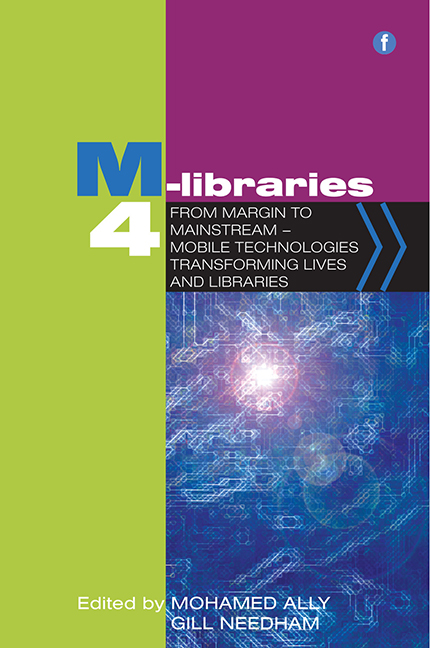1 - Cost-effective content alert system using SMS: a case study at Bundelkhand University Library, Jhansi
Published online by Cambridge University Press: 10 September 2022
Summary
Introduction
The past decade has seen a tremendous growth in mobile telephony. Research carried out by Infonetics predicts that by 2013 the number of worldwide mobile subscribers will reach 5.9 billion. This growth is ascribed mainly to the anticipated increase in mobile communication in Africa, India and China. Innovations in handsets and modes of transmission have seen an expansion of mobile telephone services to all walks of life. McEwen observes that Net Gen and Millennial students are used to being always with and on their mobile phones (McEwen, 2012).
Among the various mobile applications, Short Message Service (SMS) is one of the most popular services, widely used all over the world. Research shows that SMS has been adopted by many users and has in fact become extremely popular among both younger and older generations of users. It is estimated that close to 3.3 trillion SMS have been sent over the mobile network since its inception. Though some notable studies on the usage of SMS have been done in the past, there is very little information available on the connection between SMS and library services, although it can be generally noted many library services can be successfully run through SMS services. Bundelkhand University, in Jhansi in the heartland of India, attempted to use SMS technology to implement a cost-effective content alert system. This paper is a product of that project, which looked into whether such a cost-effective system could be implemented using SMS technology, its implications for the use of library resources and the acceptance of SMS services amongst library users.
Content alerts
An alert is defined as a form of communication that is important and time sensitive and that enables the recipient to be alert to issues which are related to them. In the library world an alert contains userrequested information or content. Alert messaging or alert notif - ication is thus the delivery of alerts to recipients. Most sophisticated service providers embrace all capabilities, aggregating a multitude of reminders, notifications and alerts and adapting the delivery system to the specific context of the content being delivered, thus enabling users to create sophisticated scenarios of their own choosing.
- Type
- Chapter
- Information
- M-Libraries 4From Margin to Mainstream - Mobile Technologies Transforming Lives and Libraries, pp. 3 - 14Publisher: FacetPrint publication year: 2014



